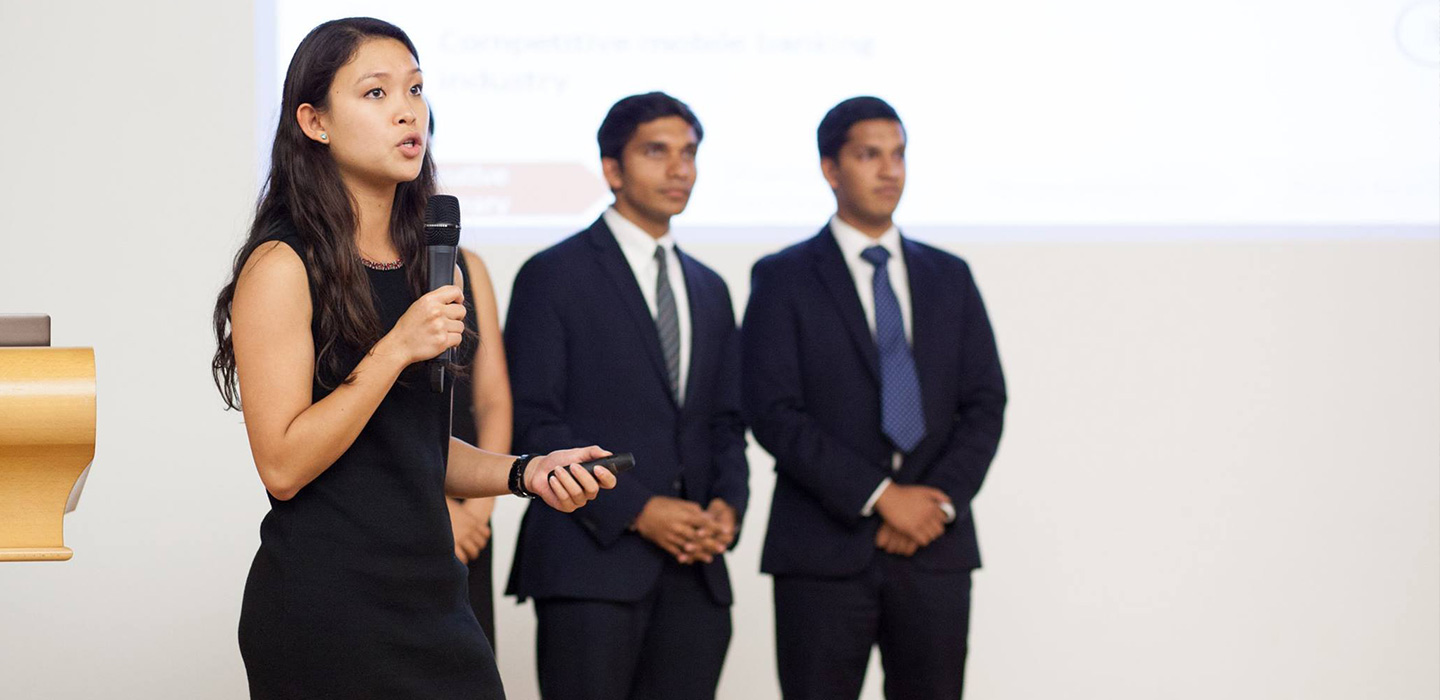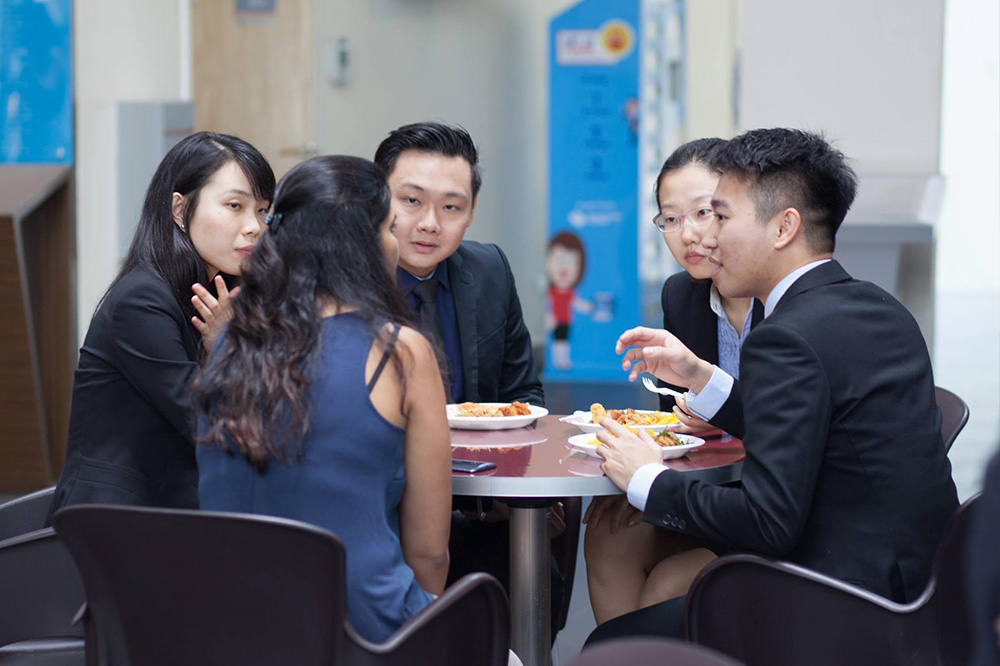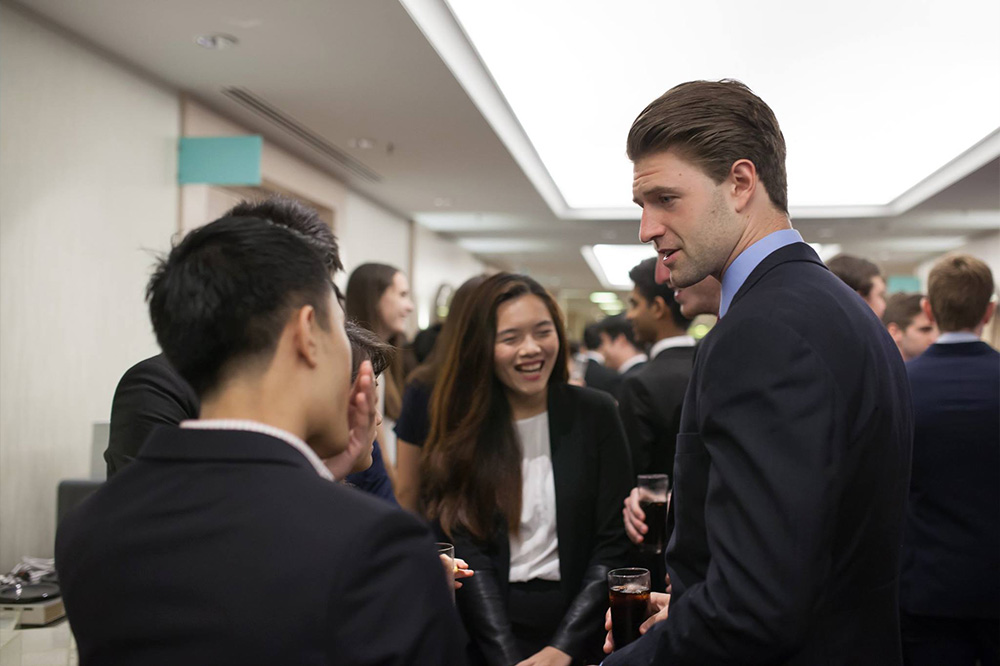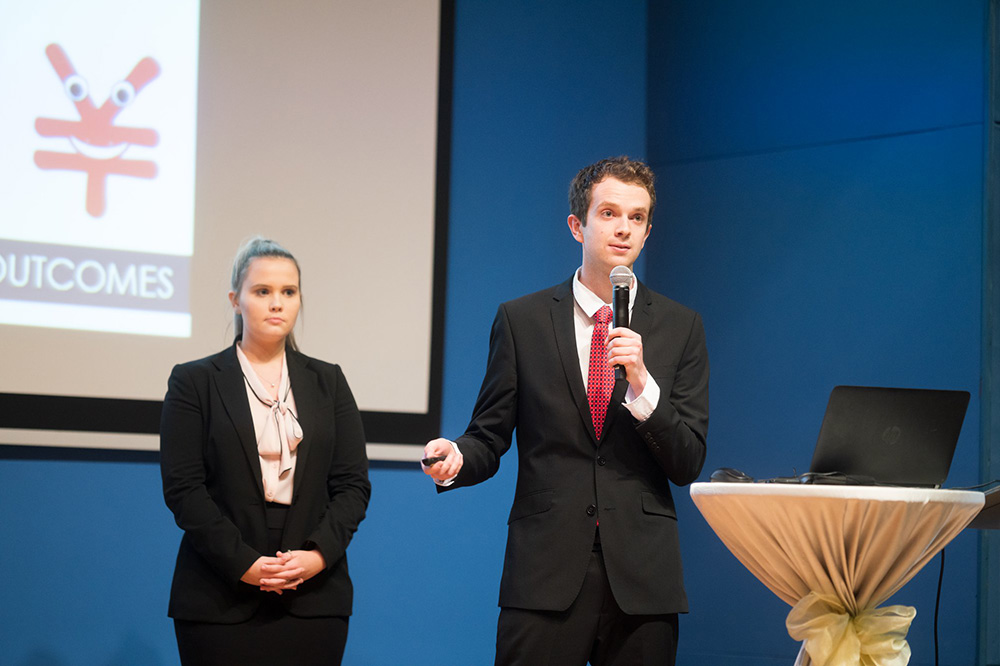NUS BBA alumna Kong Jin Yu was an ambassador for the UOB-NUS Case Competition 2016. Her experience as an ambassador for international teams opened her eyes to the many responsibilities of the role that go beyond just being friendly. She shares her top tips in making the best of the opportunity.
Ambassadors have to be tour guide, nanny, food delivery service provider and more!
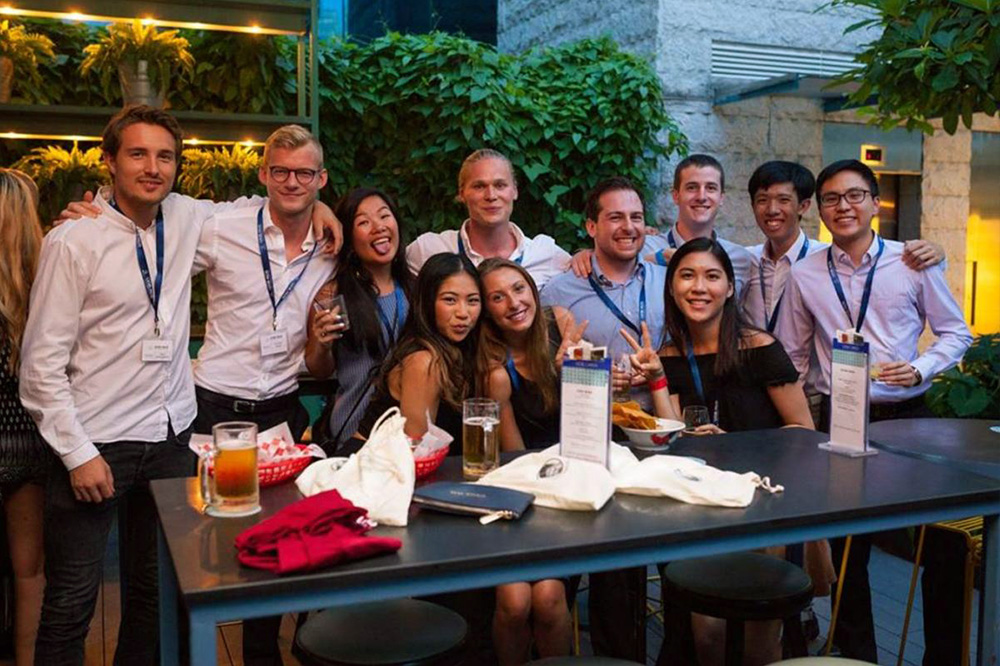
Case competitions present students from universities around the world with real business challenges to solve in 24 hours. An ambassador is assigned to host each international team – here’s how to survive as one.
Here are three tips for future ambassadors on how to survive the NUS Case Competition period:
1. “Hello, I’m Jin! How are you?”
Ambassadors meet many new faces throughout the competition and remembering and correctly pronouncing fellow participants’ names is just the first challenge.
Welcome dinners are the most overwhelming events as you are meet at least 80 people from over 16 countries all at once. Given the international setting and diverse backgrounds of participants, it may be challenging at times to learn names and how to pronounce them.
I draw parallels with my freshman orientation camp, where everyone seemed frazzled trying to make the most of their limited time to learn names and get to know one another better. Ambassadors are not exempt from feeling the same way but we have to keep calm and carry on.
Tip: Social media is your best friend! In a social setting, adding participants to your social accounts helps put faces to names and it makes remembering them easier.
2. “Hi, it’s almost time for food! What would you like to eat? ”
Even after the welcome dinner, meal times can be challenging and interesting for ambassadors. Imagine taking orders from 64 hungry participants who have just spent 10 hours brainstorming business case challenges.
The most memorable orders I received included a coffee order with a specific request for raw sugar and an order for a Filet-O-Fish burger with no mayonnaise and extra chilli sauce. I have a newfound patience and respect for food and beverage service staff.
Tip: Carry a little black book for notes on different participants. Participants from non-Asian cultures may be less adventurous when it comes to food, so be a little more conservative with your recommendations.
3. “Good luck and may the best team win!”
Despite being competitors, the participants are also a source of support and encouragement for one another.
Cracking a case means going through a gruelling 24 hours spent poring over endless research papers and piecing together a presentation you hope the judges will like. As an ambassador, showing simple acts of kindness such as offering a bottle of water or words of encouragement can help lift spirits.
Tip: I like to give teams a quick “good luck!” with a massive grin before they walk onto the stage to present their case. A friendly face before presentations and judging always helps.
No role is too small and no action too insignificant during an intense case competition. These three tips may seem superficial but they open up opportunities to understand the differences each team brings to NUS Case Competition.
Personally, I am now more mindful of different cultural nuances and am more patient when meeting new people. These friendships are forged for a lifetime and go beyond just a competition during your university undergraduate days.
If you are joining us at this year’s NUS-SP Group Case Competition, good luck!
The NUS-SP Group Case Competition 2017 will take place between 30 August and 8 September. This year’s competition is sponsored by SP Group and SPH is the media sponsor. Find out more at facebook.com/NUSCaseCompetition.



